
Why Ukraine Will Win
The country’s military is advancing on the battlefield. If Ukraine defeats Russia’s massive army, the ripple effects will be felt across the globe.

The country’s military is advancing on the battlefield. If Ukraine defeats Russia’s massive army, the ripple effects will be felt across the globe.


July 2021, Volume 32, Issue 3
Despite the challenges, middleware offers a legally and politically feasible answer to platforms’ influence over speech.
April 2021, Volume 32, Issue 2
The outsized power of large internet platforms to amplify or silence certain voices poses a grave threat to democracy. Finding a reliable way to dilute that power offers the best possible solution.


January 2020, Volume 31, Issue 1
Democracies are grappling with an era of transformation: Identity is increasingly replacing economics as the major axis of world politics. Technological change has deepened social fragmentation, and trust in institutions is falling. As our most basic assumptions come under question, can liberal democracy rebuild itself?
October 2018, Volume 29, Issue 4
From enhancing physical security to encouraging mutual trust, an inclusive sense of national identity continues to be crucial to the flourishing of modern states.
July 2015, Volume 26, Issue 3
It is fine to acknowledge the importance of law-based rule to the eventual rise of modern democracy, but we must not overlook the even greater contribution of the idea of equality.
January 2015, Volume 26, Issue 1
The failure to establish modern, well-governed states has been the Achilles heel of recent democratic transitions, as democratization without state modernization can actually lower the quality of governance.

January 2014, Volume 25, Issue 1
Four leading experts on democracy discuss the relevance of the “transition paradigm” in light of the “Arab Spring” and other developments in the world today.
October 2013, Volume 24, Issue 4
What is the relationship between high-quality state administration and democracy? A look back at modern Greece and Italy, along with Germany and the United States, provides some insights.
January 2012, Volume 23, Issue 1
The legitimacy and appeal of democracy in East Asia will depend on how democratic countries in the region stack up against China.
July 2011, Volume 22, Issue 3
Many new democracies have faltered due to high levels of inequality and a deep polarization between the rich and poor. What is the relationship between modern liberal democracy and socioeconomic inequality?
January 2010, Volume 21, Issue 1
While we have witnessed many transitions to multiparty systems, it has proven much harder for countries to attain a genuine rule of law. We need to know more about the origins of the rule of law in order to promote it successfully today.
October 2008, Volume 19, Issue 4
"The Latin American Experience” argues that democratic stability requires policies that limit the society’s degree of substantive economic and social inequality.
July 2007, Volume 18, Issue 3
In certain circumstances, both liberalism and popular rule can obstruct rather than promote state-building.

April 2006, Volume 17, Issue 2
Contemporary liberal democracies, especially in Western Europe, face a major challenge in integrating Muslim immigrants as citizens of pluralistic societies.
April 2005, Volume 16, Issue 2
Juan Linz’s 1990 critique of presidentialism in these pages was based largely on the Latin American experience. In the last few years, however, four new Asian democracies have encountered presidential crises. Does Linz’s work hold the secret to what has been ailing these regimes?
January 2005, Volume 16, Issue 1
World events-recent, current, and almost certainly to come-drive home the truth that before there can be a democratic state, there must first be a functioning state, period. Creating workable states where they have been destroyed or have barely existed yields to none among the challenges of our time.
April 2004, Volume 15, Issue 2
Weak or failed states are at the root of many serious global problems, from poverty and AIDS to drug trafficking and terrorism, to the failure of democratic government itself. State-building must become a priority for the world community.
October 2000, Volume 11, Issue 4
Such a comparison clearly shows a higher prevalence of democracy in Latin America and a better economic performance in East Asia. The two regions are likely to converge on both dimensions, but the gaps will remain.
July 1997, Volume 8, Issue 3
October 1993, Volume 4, Issue 4
A review of The New Cold War? Religious Nationalism Confronts the Secular State, by Mark Juergensmeyer.
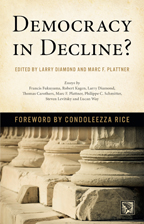
For almost a decade, Freedom House’s annual survey has highlighted a decline in democracy in most regions of the globe. Some analysts say this shows that the world has entered a "democratic recession." Others dispute that interpretation, emphasizing democracy’s success in maintaining the huge gains it made during the last quarter of the twentieth century.
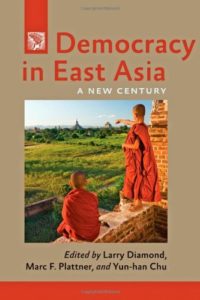
Democracy in East Asia offers a comprehensive treatment of the political landscape in both Northeast and Southeast Asia, including discussions of China, Japan, South Korea, Taiwan, Indonesia, the Philippines, Malaysia, Singapore, Thailand, Cambodia, Laos, Vietnam, and Burma (Myanmar).

Drawn from outstanding articles published in the Journal of Democracy, The Global Divergence of Democracies follows the enthusiastically received earlier volume, The Global Resurgence of Democracy.

"Capitalism, Socialism, and Democracy Revisited is must reading for anyone who considers him- or herself a political economist, and it should also appeal to those probing the uncertainties of contemporary democratization."—Philippe C. Schmitter, Stanford University.

"Presents thought-provoking notions of the ways in which we view both nationalism and democracy and provides some valuable ideas for working toward a more stable world."—Journal of International Affairs
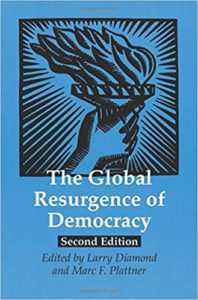
"A useful compilation popularizing the work of an influential journal… The Journal of Democracy is an effective tribune for mainstream U.S. thinking on these issues."—Political Studies
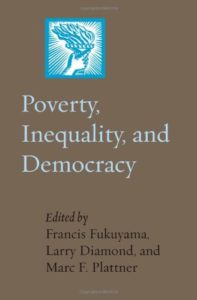
This book addresses such broad issues as whether democracy promotes inequality, the socioeconomic factors that drive democratic failure, and the basic choices that societies must make as they decide how to deal with inequality.
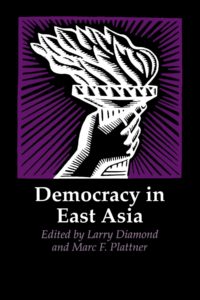
"Asian and non-Asian authors debate the desirability of democracy in East Asia… The two editors… do an excellent job introducing the issues, ideas, and approaches of the fifteen authors."—Foreign Affairs
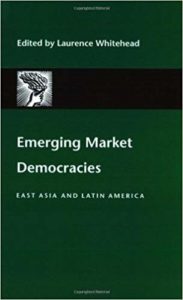
"Emerging Market Democracies provides useful insights into topics that connect market economies to various nations' politics, especially efforts at democratization, and compares and contrasts two important regions of the world in their quests for modernization."—John F. Copper, Asian Affairs

Can religion be compatible with liberal democracy? This volume brings together insights from renowned scholars and world leaders in a provocative discussion of religions' role in the success or failure of democracy.
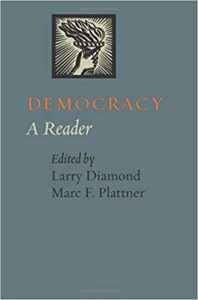
With such influential contributors as Francis Fukuyama, Robert Putnam, His Holiness the Dalai Lama, and Anwar Ibrahim, this is an indispensable resource for students of democracy and instructors at the undergraduate and graduate levels.
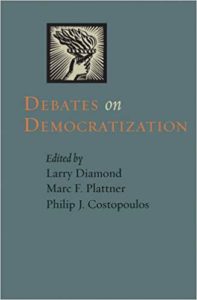
If democracy means anything, it means robust debates. Debates on Democratization is a collection of essays that explores the questions and controversies that surround contemporary democratization.
